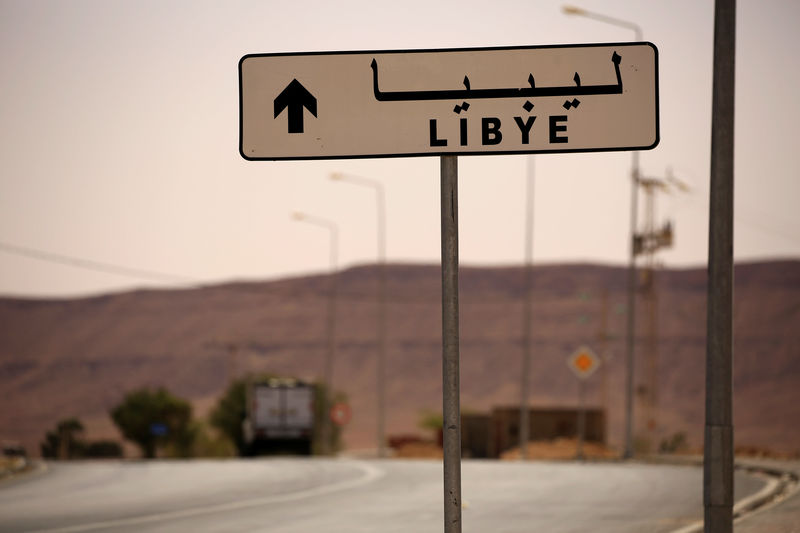Investing.com’s stocks of the week
By Geoffrey Smith
Investing.com -- Crude oil prices rebounded after a sharp dip in early trading in New York on Friday, as traders focused more on the promise of output discipline from OPEC and its friends rather than on the prospect of increased supply due to a peace agreement in Libya, a major exporter.
Prices had dipped after newswires reported that warlord Khalifa Haftarl, who is fighting the UN-recognized government in Tripoli, had approved an end to the blockade of the country's oil installations. In theory, that could release up to 900,000 barrels a day of crude into the world market, based on what Libya was exporting before its civil war interrupted shipments. However, this is a story that has seen many false dawns, and the National Oil Company said it would only lift 'force majeure' on its contracts when all oil facilities and export terminals have been 'demilitarized'.
By 11 AM ET (1500 GMT), U.S. crude futures were up 0.8% at $41.28 a barrel, on course for a gain of 10% on the week, after an aggressively bullish intervention by Saudi Arabia's Oil Minister Prince Abdulaziz bin Salman at a ministerial meeting of the so-called 'OPEC+' bloc on Thursday. Brent futures were up 0.2% at $43.37 a barrel.
Prince Abdulaziz had warned speculators not to "test the resolve" of the world's largest oil exporters, many of whom still need a higher oil price to balance their budgets. He also had harsh words for quota-busters such as the United Arab Emirates (although he didn't name them), and held out the possibility of an emergency meeting to decide deeper production cuts if prices continue to come under pressure from a shortfall in global demand.
"We believe the OPEC+ talks, leaving the option on the table for an additional extraordinary meeting as well, has jolted some confidence into bullish minds," said Rystad Energy analyst Bjornar Tonhaugen in emailed comments. " he belief may be that OPEC+ will not come “too late to the party” (in terms of adjusting OPEC+ policy) if demand takes another leg down due to new COVID-restrictions in the near term.
Those new restrictions are looking ever more likely as India's rate of new infections spirals toward the level of 100,000 a day, while European countries tighten their restrictions on social gatherings to clamp down on a resurgence of cases over the late summer. The capitals of both Spain and the U.K. are facing fresh lockdown measures, according to officials in both countries. Over one-fifth of Madrid's hospital beds are now occupied by coronavirus patients, according to official data quoted by El Pais.
Rystad's Tonhaugen noted that it still wasn't clear whether words from OPEC would be enough to turn the market around, given that weak refining margins are damping demand from refineries in various key regions.
